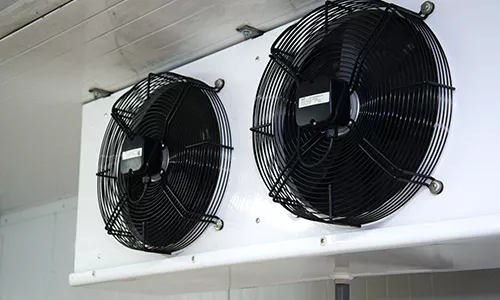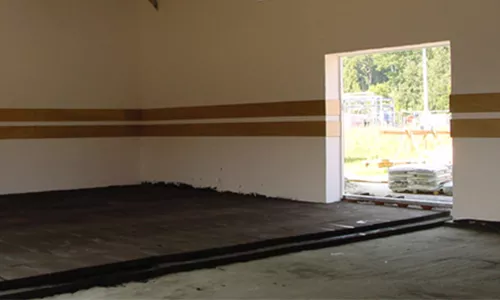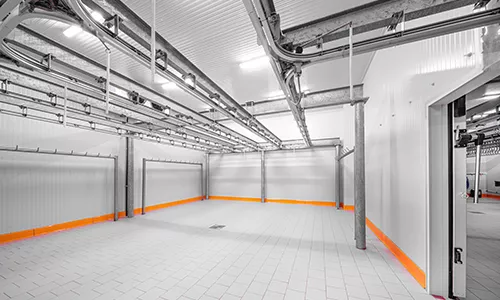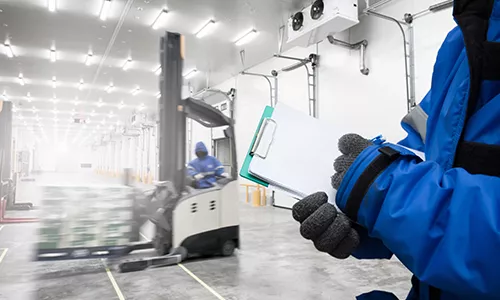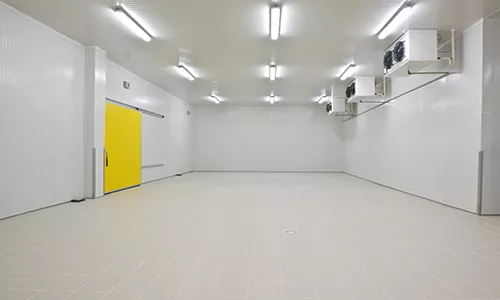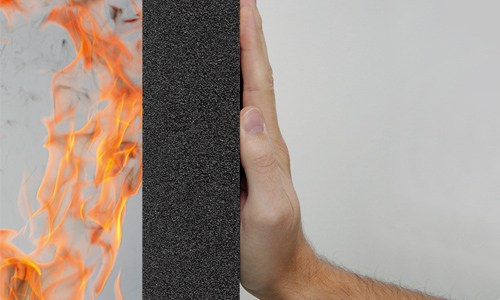Cold Stores
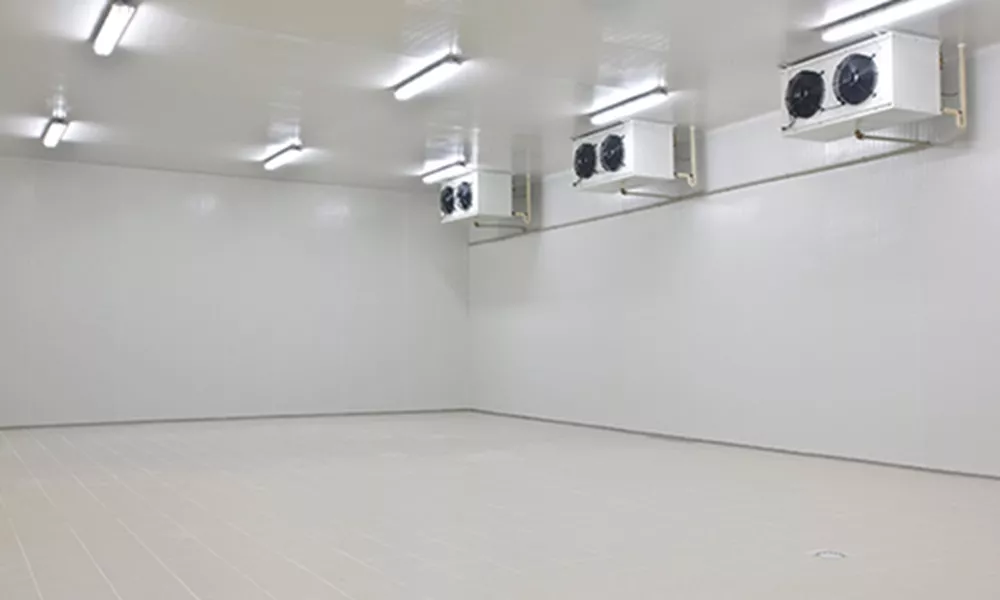
Cold stores are specialized buildings or spaces designed to store temperature-sensitive products at controlled low temperatures. These facilities play a crucial role in preserving the quality, safety, and shelf life of perishable goods such as dairy products, frozen foods, pharmaceuticals, and chemicals. They serve as an essential link in the supply chain, ensuring that products remain viable from production to distribution and consumption.
insulating for thermal performance
The main goal of the thermal insulation system is to act as a barrier to help prevent heat from the outside environment from entering the enclosure where the intended temperature is much lower.
Maintaining a steady temperature inside the cold store is crucial because of multiple reasons.
Firstly, this helps reduce energy consumption, when heat penetrates the enclosure, the chillers have to work overtime leading to high energy consumption and operating costs. Secondly, depending on the goods stored in the cold store, it is crucial that there are no temperature fluctuations that could negatively affect the quality and integrity of the stored goods.
Providing adequate thermal insulation also reduces the need for additional investments and costs related to installing, operating and maintaining heating systems to prevent freezing of the foundation.
FOAMGLAS® insulation provides great thermal resistance* for below ambient applications and also has a non-changing thermal conductivity. This means that after several decades, the insulation material still provides the same thermal performance as the day it was installed. On top of this, it also helps protect against freezing of the underlying natural ground which could otherwise lead to issues such as lifting and warping of the floor.
* The performance of the product is declared in the DOP.
Insulating for condensation prevention
Cold stores are sensitive to humidity. The insulation must therefore remain dry to remain efficient. The large difference between the ambient outside temperatures and the cold temperature inside the cold store creates a situation with high vapor pressure. When the insulation material used is not completely closed-cell, moisture-laden air can penetrate the material and condense in the insulation layer as soon as it reaches the dew point and possibly change to ice when the temperature drops below 0°C. This can have a serious effect on the insulation's efficiency and the dimensional stability and settling behavior of the material.
FOAMGLAS® insulation is totally impervious to water vapor. Its hermetically sealed, closed cell structure prevents vapor diffusion. Unlike other insulation materials, it does not rely on an external vapor barrier for its resistance to moisture in liquid and vapor form. This impermeability helps ensure that interstitial condensation cannot occur within the insulation material.
The high compressive modulus of elasticity and high compressive strength of FOAMGLAS® cellular glass* allows the material to be used for the insulation of floors, especially in those cases where goods are stacked or where the traffic of forklift trucks is high.
The traffic loads from vehicles will be transferred to the substrate or bearing slab without deformation or creep. FOAMGLAS® insulation will retain its initial compressive strength over time, with no reduction due to temperature or environmental conditions.
* The performance of the product is declared in the DOP.
Insulating for fire protection
Cold stores are used to store perishable products but also for chemical compounds that can be very reactive and thermally unstable which is why it is crucial that the cold storage temperature is kept steady.
Any increase in heat could lead to decomposition of these compounds, giving off heat at a rate that increases as the temperature rises. If this heat cannot be transferred to the environment, self-heating will accelerate which can lead to a violent combustion or thermal explosion.
This is why it’s extremely important to keep the temperature constant, even a small increase in temperature can cause a chemical reaction and result in an explosion and fire.
FOAMGLAS® insulation presents a high degree of fire safety as it combines three important physical properties, non-combustibility, non-absorptivity, and no production of toxic smoke.
This means the material does not burn, does not add to the spread of fire nor does it produce any kind of toxic fumes in case of a fire. Its impermeable nature prevents any absorption of combustible liquids that could auto-ignite under certain circumstances.
* The performance of the product is declared in the DOP.
Typical configuration
for cold stores
-
A PC® adhesive
-
A single- or double layer system of FOAMGLAS® HLB insulation
-
A fabric-reinforced coating
Legal notice
The information relating to the products and systems contained on this website is provided in good faith and for general information purpose only. Such information is in any event subject to our product’s legal notice, the content of which users are invited to acknowledge under the following link: Legal Notice


